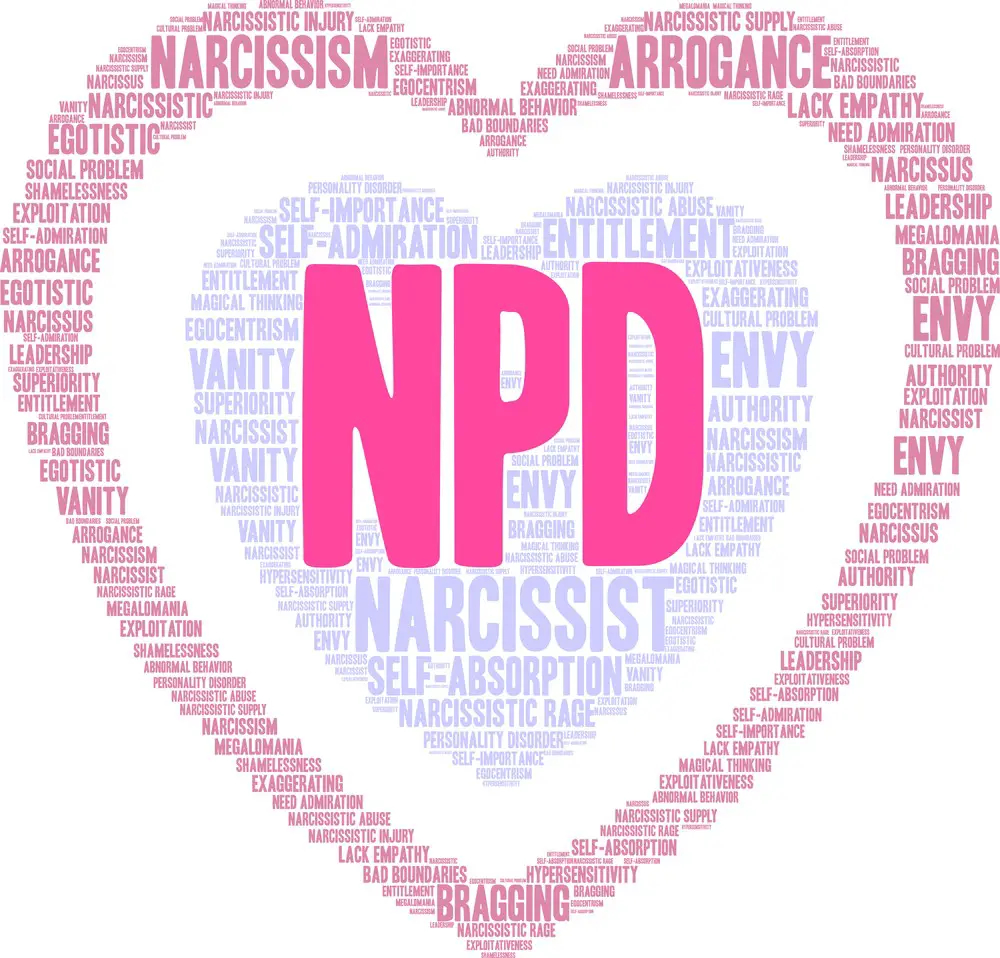As a BetterHelp affiliate, we receive compensation from BetterHelp if you purchase products or services through the links provided
Neglectful narcissism is a complex and often misunderstood form of narcissistic behavior that can significantly impact the individual displaying the traits and those around them. It is essential to develop an understanding of the signs, origins, and consequences of this behavior to effectively manage relationships with those who exhibit neglectful narcissism.
People with neglectful narcissism often seem uninterested or dismissive of the needs and emotions of others, which can result in interpersonal conflict and emotional distress for those in relationships with them. By exploring the origins and causes of neglectful narcissism, individuals can gain insight into the development of these traits and seek appropriate coping and healing strategies for themselves and their loved ones.
Key Takeaways
- Neglectful narcissism involves being uninterested and dismissive of others’ needs and emotions.
- Exploring its origins and causes can help individuals understand and manage relationships with neglectful narcissists.
- Coping and healing strategies are essential for those affected by neglectful narcissism, both for themselves and for supporting the narcissist in recovery.
Understanding Neglectful Narcissism
Narcissism and Narcissistic Personality Disorder
Narcissism is characterized by an excessive interest in oneself, often accompanied by a lack of empathy for others. Narcissistic Personality Disorder (NPD) is a more severe form of narcissism. It is a mental health condition marked by a pattern of self-centeredness, grandiosity, entitlement, and lack of empathy.
Covert Narcissism vs Overt Narcissism
There are two types of narcissism: covert and overt. Covert narcissists, also known as vulnerable narcissists, often have feelings of inadequacy and tend to be introverted. They may exhibit passive-aggressive behavior and require constant reassurance. In contrast, overt narcissists, sometimes called grandiose narcissists, display arrogance, dominance, and a sense of superiority.
Traits and Signs of a Neglectful Narcissist
Neglectful narcissists tend to possess a combination of overt and covert narcissism traits. Common signs include:
- Emotional neglect: They lack empathy and may ignore or dismiss a partner’s feelings or emotional needs.
- Avoiding responsibility: They often try to avoid taking responsibility for their actions and may blame others for their mistakes.
- Manipulation: Neglectful narcissists may use manipulation tactics, such as gaslighting or playing the victim, to avoid accepting fault.
- Poor communication: They may not engage in open, honest communication and often avoid addressing issues within the relationship.
- Lack of commitment: They tend to have difficulties with commitment and may be unable to maintain long-term relationships.
Recognizing and addressing these traits in a neglectful narcissist is crucial for those affected by their behavior. It is essential to seek professional help to cope with the challenges that narcissism can bring to relationships and one’s mental health.

Origins and Causes
Genetics and Environmental Factors
The development of neglectful narcissism can be attributed to a combination of genetic and environmental factors. Genetics may play a role in predisposing some individuals to this personality disorder. Studies have shown that there may be a heritable component, with individuals who have a family history of narcissistic personality disorder being more likely to develop it themselves.
Environmental factors are also crucial in shaping a person’s personality. For instance, an individual raised in an environment where they receive excessive praise, adulation, or attention from caregivers may develop an inflated sense of self-worth and entitlement. Conversely, those exposed to criticism, rejection, or neglect may develop a highly fragile and vulnerable sense of self, resulting in neglectful narcissism.
Childhood Trauma and Abuse
Childhood experiences often play a significant role in the formation of neglectful narcissistic traits. Trauma and abuse during formative years can result in emotional deregulation, fostering a sense of mistrust and a craving for validation and admiration from others. In some cases, victims of childhood abuse may develop a distorted sense of self, feeling either superior or inferior to others.
An environment where caregivers are unavailable, inconsistent, or unresponsive to a child’s needs can also contribute to the development of neglectful narcissistic traits. This absence of emotional support may lead the child to seek validation from outside sources and become self-absorbed in an attempt to meet their own emotional needs. Balancing the need for external validation with a fragile sense of self-worth often results in neglectful narcissistic behaviors.
The interplay between genetics, trauma, caregivers, and childhood abuse ultimately shapes an individual’s susceptibility to developing neglectful narcissism. A complex mixture of factors contributes to the development of this personality disorder, making it challenging to pinpoint a single cause.
The Effects on Relationships
Neglect and Emotional Impact
In relationships, neglectful narcissists often disregard their partner’s emotional needs. They tend to focus on themselves and prioritize their own desires over that of their partners, lacking empathy and concern for others. This can result in the partner feeling ignored, unloved, and invalidated. The lack of attention and empathy from the narcissist makes it difficult for their partner to establish a secure emotional connection, leading to further feelings of isolation.
The constant disregard for their partner’s emotions can take a toll on the partner’s mental well-being. They may experience feelings of worthlessness, anxiety, or depression as a result of the neglectful behavior. Their self-esteem and confidence may decline over time, as the narcissist reinforces their superiority and indifference.

Patterns of Manipulation and Control
A neglectful narcissist may use power and control tactics in relationships to manipulate their partner. They might display manipulative behaviors like gaslighting, wherein they make the other person question their own reality or perceptions. They can also set up boundaries that only serve their own needs while disregarding their partner’s needs, asserting their dominance in the relationship.
Furthermore, narcissists may demand obedience and unconditional loyalty from their partner, further controlling them. They may isolate their partner from friends and family to limit external influences and maintain a position of authority in the relationship. By stifling their partner’s autonomy, neglectful narcissists prevent them from asserting their own independence, which can lead to a toxic dynamic.
On the other hand, neglectful narcissists may evade responsibility and refuse to show affection. They might not express concern, care, or support when their partner is in need, emphasizing their sole focus on their own well-being. This lack of emotional support further pushes their partner into isolation and undercuts their sense of self-worth.
In short, neglectful narcissists can create damaging effects on relationships through their emotional negligence and manipulative tendencies. Their self-centered behavior can breed toxic patterns that leave their partners feeling unheard, devalued, and powerless, impairing the foundation of a healthy and supportive relationship.
Coping and Healing Strategies
Setting Boundaries and Protecting Yourself
One crucial coping strategy when dealing with a neglectful narcissist is setting boundaries. Be firm in communicating your limits and standing your ground. It is essential to prioritize self-care and ensure that you maintain your mental well-being. Engage in activities that promote relaxation and happiness, such as exercise or pursuing hobbies.
Sensitivity is vital, as it helps recognize any negative emotions or stress. Embrace positive emotions by practicing gratitude, acknowledging your achievements and self-worth. Surround yourself with supportive friends and family members to create a nurturing environment for healing.
Seeking Professional Help
If the relationship with a neglectful narcissist has adversely impacted your mental health, it’s crucial to seek professional help. Therapists and counselors are knowledgeable in supporting those who have experienced emotional trauma. They can provide valuable guidance and coping mechanisms specific to the individual’s situation.
Engaging with mental health professionals can help you understand the complexities of the neglectful narcissist’s behavior, which may stem from a mental health condition. Working with a therapist will allow you to gain insights and form strategies for personal growth and healing. Remember, seeking support is a vital step in overcoming the challenges associated with narcissistic relationships.
Supporting a Neglectful Narcissist in Recovery
Encouraging Self-Awareness and Empathy
Supporting a neglectful narcissist in recovery begins with helping them develop self-awareness and empathy. It’s essential to help the individual understand their lack of empathy and how it impacts their relationships with others. This can be achieved through open and honest communication, allowing the narcissist to reflect on past actions and behaviors. Encourage them to take responsibility for their actions, so they can start to develop a sense of empathy towards others.
Navigating Recovery and Relapse
Recovery from neglectful narcissism can be an ongoing process, as relapses may occur. To effectively support the individual, it is crucial to anticipate triggers and form healthy coping mechanisms. It’s helpful to establish boundaries and monitor progress while also reinforcing the importance of self-awareness and empathy.
In the event of a relapse, it is essential to remain patient and offer support. Remind the individual of their progress thus far and to not lose sight of their recovery goals. Reinforcing the value of empathy and reality during these moments may make a difference in their overall recovery process.
Throughout recovery, make sure to maintain a neutral and clear tone of voice to foster a supportive environment. It’s possible to have a positive impact on a neglectful narcissist’s journey to recovery while also maintaining a healthy boundary for yourself.
FAQs
What is a neglectful narcissist?
A neglectful narcissist is an individual who exhibits traits of both neglectful behavior and narcissism. They often prioritize their own needs and desires above others, while simultaneously showing a lack of care, concern, or empathy for the needs or feelings of those around them.
How does neglectful narcissism manifest in relationships?
In relationships, a neglectful narcissist may:
- Dismiss or belittle their partner’s emotions and concerns
- Require constant admiration and validation, without reciprocating support
- Often withhold affection or attention as a form of control
What are the potential impacts of being in a relationship with a neglectful narcissist?
Being in a relationship with a neglectful narcissist can lead to feelings of:
- Loneliness and isolation
- Low self-esteem
- Strained communication
- Emotional and psychological stress
How can one address the behavior of a neglectful narcissist in their life?
There are several approaches to handling a neglectful narcissist in one’s life:
- Communicate openly and honestly about feelings and set clear boundaries
- Seek support from friends, family, or a professional therapist
- Understand that change may not be achievable, and consider if the relationship is worth maintaining in its current state
Are there effective treatments for neglectful narcissism?
Treatment for individuals exhibiting neglectful narcissistic behavior may include psychotherapy, such as Cognitive Behavioral Therapy (CBT) or Dialectical Behavior Therapy (DBT). These therapeutic approaches can help individuals gain insight into their thought patterns and behaviors, while providing strategies to cultivate healthier relationships and self-awareness. However, commitment to change and self-improvement is crucial for effective treatment.
- 3 Ways Wearing a Hat Can Help Lower Your Stress Levels - April 19, 2025
- Breaking the Silence: Why Men’s Mental Health Matters More Than Ever - April 15, 2025
- How to Transform a Home’s Patio Space into a Relaxing Space - March 23, 2025
This site contains affiliate links to products. We will receive a commission for purchases made through these links.



